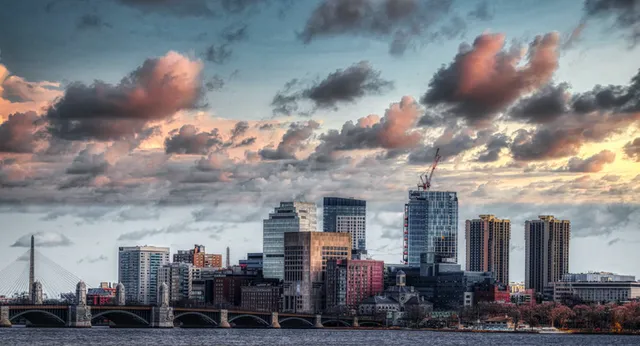Fun Facts About Boston Massachusetts
Birthplace of the American Revolution
Founded in 1630 by Puritan settlers from England, Boston is considered the birthplace of the American Revolution. In addition to its rich history, it is also the financial center of New England. It is home to several historical attractions, including Faneuil Hall and the Boston Tea Party Ships Museum.
Boston is also known as the "Cradle of Liberty". The city is the site of many historical events leading up to the birth of the American Revolution. The city is the perfect place to visit if you are interested in the history of the American Revolution.
Political, Commercial, Religious, And Educational Center Of Puritan New England
During the seventeenth century, Puritanism played an essential role in the history of England. It was a religious movement with a strong presence in New England. It was also a social force that shaped the lives of early New Englanders.
During the sixteenth and seventeenth centuries, Puritans emerged within the Church of England. They were a group of Protestants who desired to reform the Church of England and rid it of Catholic practices. They were in alliance with Scottish Presbyterians and parliamentary opponents of the royal prerogative.
The Puritans were a religious minority who grew in power in England during the First English Civil War of 1642-1646. They resulted from the Millenary Petition, brought by James I in 1603, to reform the Church of England.
Major Player In The Mutual Fund Industry In The 1970s
During the late 1970s, Boston, Massachusetts, was among the leading players in the mutual fund industry. The city was a hotbed of innovation in financial services and venture capital, and its citizens were well-served by the healthcare system. A series of urban renewal projects helped improve the quality of life, and Boston University attracted many students.
The first no-load mutual fund was launched in 1928 by Scudder, Stevens, and Clark. This was a big deal because it was the first to offer stock funds and bond investments.
Host of the 2004 Democratic National Convention
Approximately 35,000 delegates and supporters descended on Boston for the 2004 Democratic National Convention. This was the city's first hosted major political convention in almost 30 years.
It also presented some serious challenges to local and state transportation agencies. The convention produced $255 million in "net new economic activity." In addition, the city was required to pay $18 million to settle lawsuits.
One of the more exciting parts of the experience was the technology used to make it all possible. In particular, the DNC utilized mobile phones and augmented reality technology to facilitate communication with delegates. The MBTA was also on the ball. Brochures were given out to riders and informational media to help them make their way through the city.
Smelt Brook and Muddy River
During the late seventeenth century, Brookline, Massachusetts, was a colonial town but was eventually acquired by Boston. Algonquian Native Americans initially inhabited the area. In the early 1800s, European settlers arrived. They developed the town into a commuting town. The name Brookline was derived from two small brooks.
The Muddy River was the boundary line between Brookline and Boston. It begins in Jamaica Pond, then flows through Route 9, the Brookline Avenue Culvert, and the Riverway Culvert. Parks and hiking trails surround it. The Muddy River and its tributaries are protected public recreation areas.
Financial Elite Known As The Boston Brahmins
During the nineteenth century, Boston was the financial center of the United States. It also became the educational and cultural hub of the nation. Its wealth was primarily controlled by a financial elite known as the Boston Brahmins.
During the nineteenth century, Boston became a haven for Irish Catholic immigrants. As the wave of immigrants came in, they created a monopoly on power in the city. The Brahmins fought to control their destiny and shut out their poorer counterparts.
The Brahmins were the financial and literary elite of Boston. They patronized the arts in unprecedented ways in the New World. They made fortunes as American merchants. They were deeply embedded in the cotton economy of the early nineteenth century. They were also a significant force in the Abolitionist movement.
Discrimination Against Same-sex Marriages
Several states, including Massachusetts, have enacted "defense of marriage" laws prohibiting same-sex marriages. These laws are generally interpreted to mean that same-sex couples cannot get married in a civil ceremony. This prohibition is justified, in part, by the Fourteenth Amendment. It also protects deeply personal realms of intimacy, such as the choice of an intimate partner.
The debate over same-sex marriage has reached the highest levels of politics, as former governor Mitt Romney and presidential candidate Barack Obama have each voiced opposition to the law. The Massachusetts Declaration of Rights does not guarantee a right to marry same-sex, and a ban on the practice violates the state's constitution.
